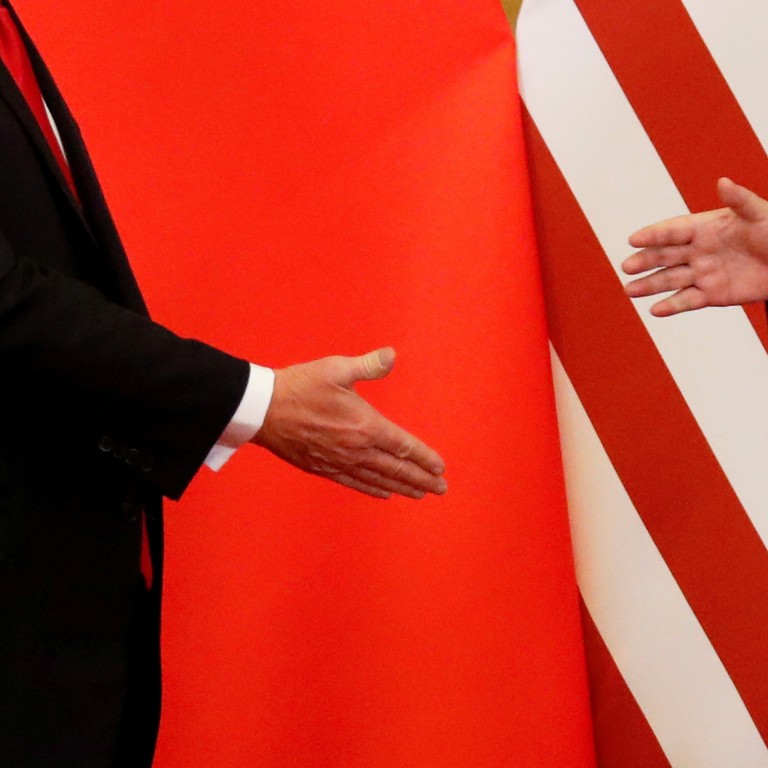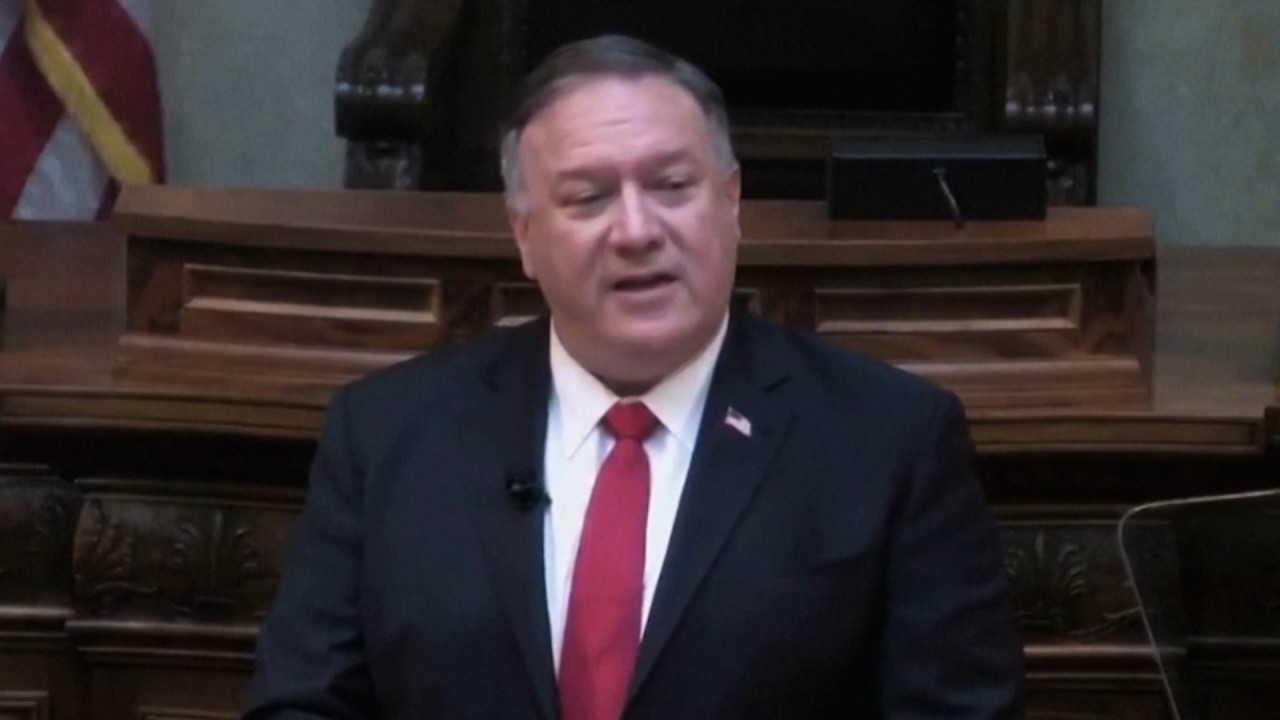
Hawk or super hawk? The choice for American China watchers
- With his disdain for non-profit expertise, Trump disrupted the US foreign policy establishment, ending a policy of engagement that went back to 1972
- A new president may be heading to the White House but that won’t necessarily mean a reversion to the past
Among the worst hit by Trump’s “swamp-draining efforts” were the China expert community, particularly think tank analysts and opinion leaders, who were left high and dry when the administration turned its back on the foreign policy establishment.
This shift is one of the most consequential aspects of the Trump presidency and eventually led to the demise of the decades-old engagement policy between Washington and Beijing, according to a new study in the US.

01:06
Mike Pompeo urges US officials to beware China’s attempts at engagement
The research by David McCourt, a sociologist specialising in international politics from the University of California, Davis, comes as China experts are debating why the engagement strategy that dated back to Richard Nixon’s groundbreaking visit to Beijing in 1972 came to an abrupt end.
McCourt argues that for many China watchers engagement was more personal than a foreign policy strategy and a set of ideas. “It was a reflection of personal and professional investments in positive US-China relations of a group of China experts” across American think tanks, universities, business and media companies. “The end of engagement is at base a disruption in these interconnections,” he said.
In contrast, most China experts blame the shifting balance of power from West to East, or Trump’s politics and personality for the death of engagement.
Chinese foreign minister urges Germany to resist US pressure play for disengagement with China
McCourt noted that many veteran observers, such as Ezra Vogel, Joseph Nye and Kenneth Lieberthal, moved between the China expert community and successive governments from Ronald Reagan to Barack Obama, promoting political and economic engagement with China.
But the election of Trump, notorious for his disdain for non-profit expertise, upended the traditional alliance with China watchers.
As a result, pro-engagement experts were marginalised and ridiculed as panda huggers, while China critics previously considered outside the mainstream were empowered.
Engagement proponents who had dominated America’s China policymaking, such as David Lampton and Stapleton Roy, found themselves “outside the centre of gravity” in the China expert community, which was divided into supporters and opponents of Trump.
It is an open secret that “there are few powerful individuals in US China policy circles willing to either defend or construct a China strategy that bears much resemblance to engagement”, McCourt said.
A Washington-based think tanker agreed, saying China watchers had only two choices in the era of Trump: be a hawk or a super hawk.
In this sense, Joe Biden’s defeat of Trump is clearly a welcome change for many China watchers as the president-elect is known for his close ties with think tanks and foreign policy professionals. But with the arc of US-China relations bent so much and the politicisation of expertise on China, China watchers may still have to constantly justify their purpose and find a replacement for the engagement strategy.

